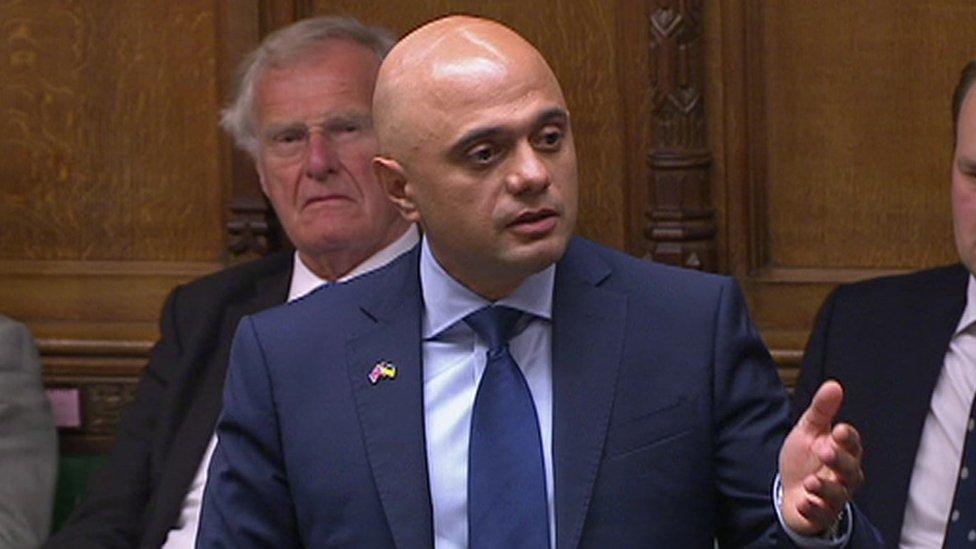Boris Johnson: PM whose political life began in Wales
- Published

The future prime minister's attempts to launch a political career began with campaigning in Clwyd South in 1997
As Boris Johnson finally succumbs to overwhelming pressure and resigns as prime minister, his first attempt to launch a parliamentary career seems a long time in the past.
It began in north Wales when he was selected as Tory candidate for the Clwyd South seat in 1997.
He lost that election, but by July 2019 he was prime minister, having taken over from Theresa May.
It wasn't to last. Within three years it came crashing down after deputy chief whip Chris Pincher stepped down amid allegations he groped two men at a party.
Following the resignation, No 10 and a series of government ministers initially denied Mr Johnson was aware of specific complaints against Mr Pincher before appointing him as deputy chief whip.
But on 5 July Lord McDonald, a former top civil servant in the Foreign Office, accused No 10 of not telling the truth. He said Mr Johnson was briefed "in person" about a "formal complaint" into Mr Pincher's conduct in 2019, when Mr Pincher was a Foreign Office minister.
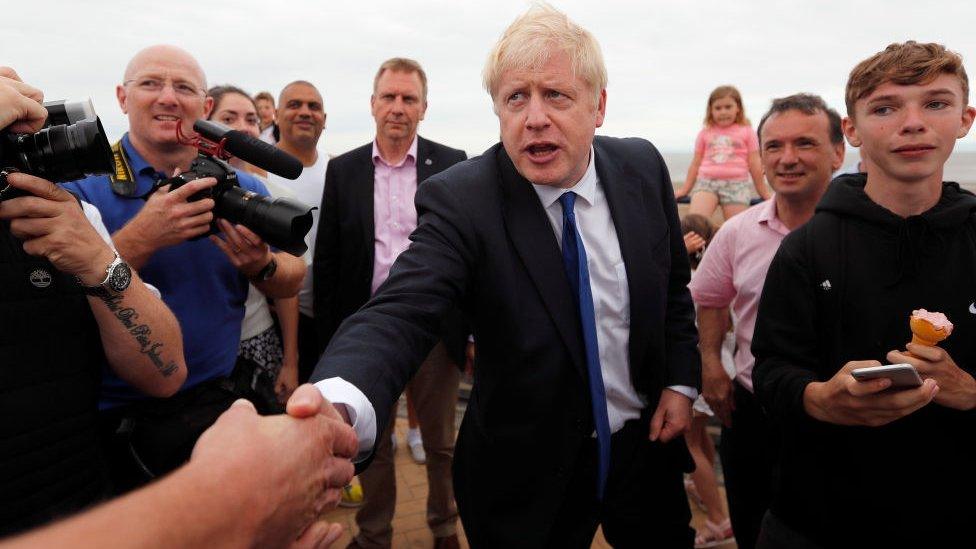
Twenty-two years after launching his political career, Mr Johnson, pictured here in Barry, was prime minister
On the defensive, No 10 changed its line to say the prime minister was briefed at the time but could not "recall this" when the latest allegations emerged last week.
In a BBC interview, Mr Johnson confirmed this and said he "bitterly" regretted not acting on the information.
But within minutes of sitting down with political editor Chris Mason, the chancellor Rishi Sunak and health secretary Sajid Javid had resigned and the writing was on the wall.
Watch: Boris Johnson: A career in moments
Virginia Crosbie became the first Welsh MP to call publicly for Mr Johnson to go on Tuesday night when she quit as a government aide.
On Wednesday, Welsh Secretary Simon Hart had made it clear to No 10 it was "game over".
Conservative Senedd leader and staunch supporter Andrew RT Davies said it was "the end game".
Former Welsh Secretary and Preseli Pembrokeshire MP Stephen Crabb called for Mr Johnson to resign "for the good of the country".
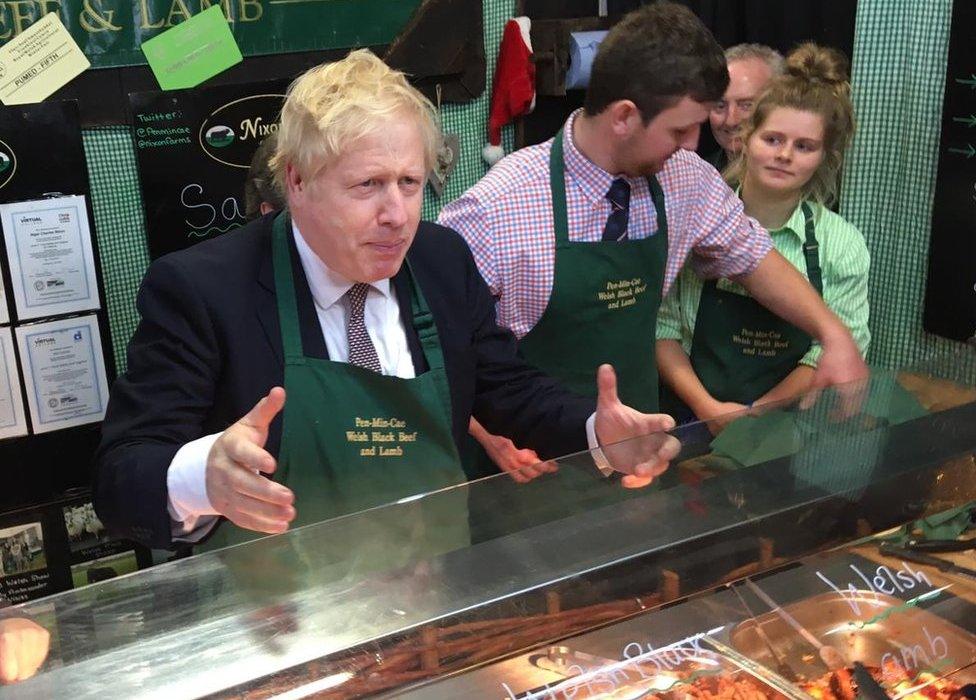
Within three years of his landslide election victory, everything came crashing down
Montgomeryshire Conservative MP Craig Williams resigned as a government aide, with Brecon and Radnorshire MP Fay Jones following on Thursday.
The PM's government had been in serious trouble since the Partygate scandal, which revolved around Downing Street parties having taken place during lockdown.
A total of 126 fines were issued, including to the prime minister. He rejected calls to resign.
When Sue Gray's report into Partygate was published in May this year it described excessive drinking and a lack of respect shown to cleaning and security staff.
It concluded senior political and civil service leadership must bear responsibility.
Support for Mr Johnson dropped but amid calls for his resignation, he clung on.
When Russia invaded Ukraine on 24 February, the news agenda changed. As the war raged and the UK was thrown into a cost-of-living crisis Mr son brushed aside talk of quitting, insisting he had to focus on the job.
But calls for him to resign continued after he survived a vote of no confidence in June.
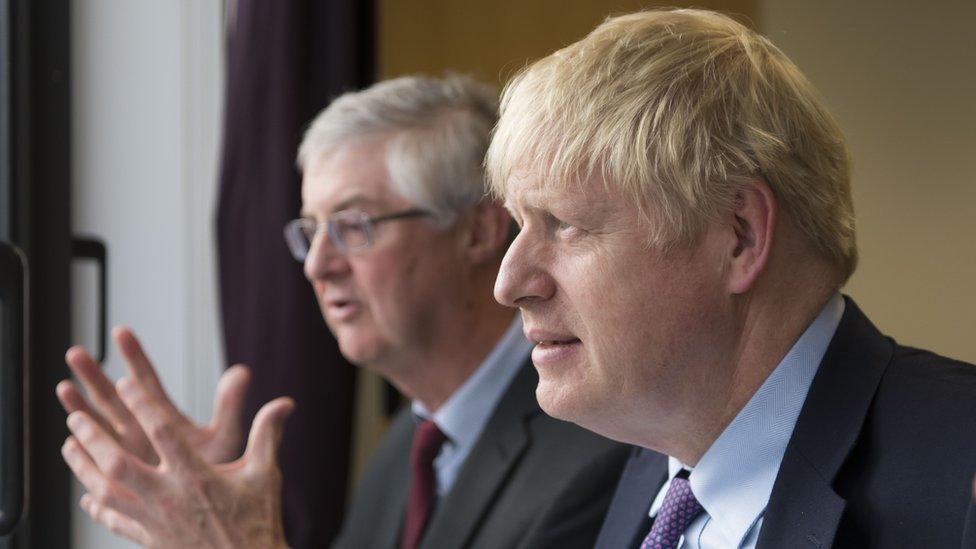
Mr Johnson's premiership was dogged by troubles almost from the start
Mr Johnson began ruffling feathers almost as soon as he became prime minister.
By August 2019 he had provoked fury among opponents by unlawfully suspending parliament amid wrangling over Brexit.
This did not stop him winning a landslide election victory in December 2019.
And with the country firmly under lockdown rules in May 2020, the PM's former chief adviser Dominic Cummings' trip to Barnard Castle was revealed, which ultimately led to the Brexit mastermind leaving No 10 and becoming his most damaging critic.
There were other scandals too. These included Mr Johnson's friendship with US businesswoman Jennifer Arcuri, claims of Home Secretary Priti Patel bullying staff, allegations of government cronyism, the funding of a Downing Street refurbishment, an eventual U-turn over changes to MPs' standards rules after Owen Patterson was found to have broken lobbying rules, and the transportation of Pen Farthing's animals from Afghanistan.
His supporters point to him having "got Brexit done" and rolling out Covid vaccines before any other developed nation as the high points of his career.
But whether this will be how he is remembered in the history books, only time will tell.

SAM SMITH PRESENTS STORIES OF HIV: From Terrence Higgins to today
LIFTING THE LID ON THE CARE SYSTEM: A shocking insight into the lives of young people in care

- Published6 July 2022
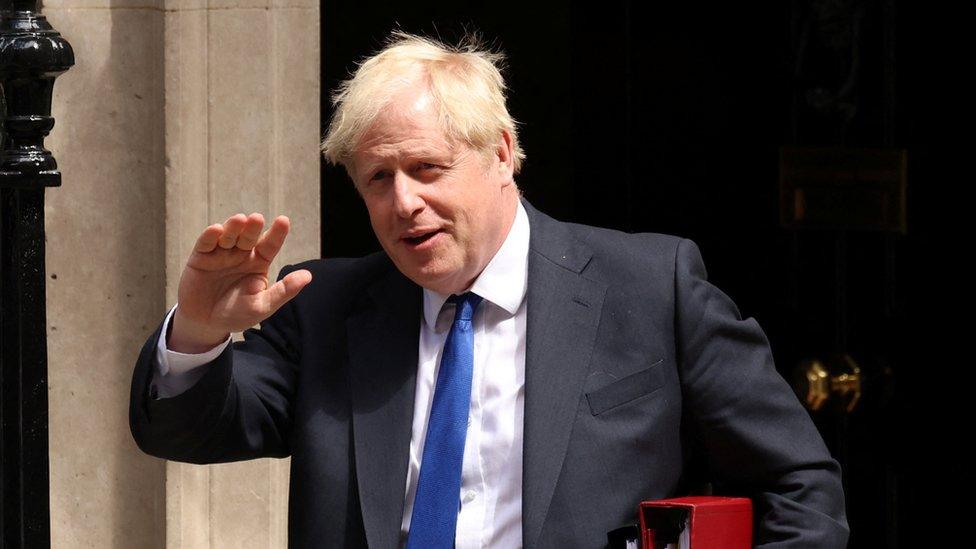
- Published6 July 2022
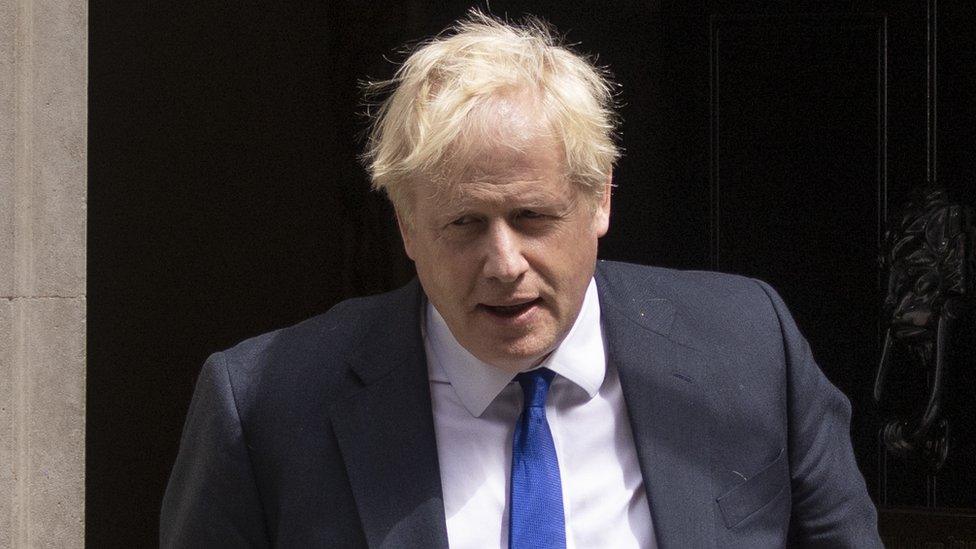
- Published6 July 2022
